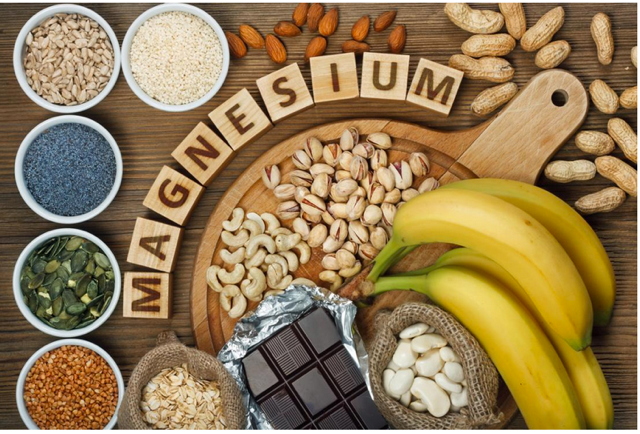
27 Feb Meet the Ultimate Multi-Tasking Nutrient

If you are a modern city dweller, multi-tasking is probably something too familiar – whether it’s your job or taking care of the family. Multi-tasking typically comes at a price – higher stress levels for instance that has knock-on effects on your health.
Perhaps nature knew somehow we humans are going to inflict ourselves with unhealthy habits like multi-tasking. Nutrients, whether vitamins, minerals, others, typically have multi functions and work in synergy.
In my view, the greatest workhorse and multi-tasking nutrient is the mineral magnesium. This mineral is needed in several hundred enzymatic, hormonal and other biochemical processes in our bodies.
Did you know that chocolate craving is one of the signs of magnesium deficiency?
Pure cacao powder is a rich source of magnesium.

Here are other common signs you could be low in magnesium
- Muscle twitches, muscle spasms e.g. eyelid twitch, chest pain, calf and foot cramps
- Ultra sensitivity to noise
- Being high strung
- Nervous hyper excitability
- Anxiety, panic attacks
- Constipation
- Fatigue, feeling weak
- Insomnia
Long-term or chronic deficiency in magnesium is linked to these serious health issues
- Heart disease, hypertension
- Stroke
- Diabetes, metabolic syndrome
- Depression
- Seizures
- Osteoporosis
- Hypothyroidism
- Fibromyalgia
- Arthritis
- Memory issues, dementia
Magnesium’s Multi Tasks
- Promotes proper deposition of calcium in our bones and teeth.
- Keeps calcium out of arteries, joints and other tissues where a buildup could be dangerous.
- By balancing calcium, sodium and potassium, magnesium relaxes muscles, arteries, supports healthy blood pressure, calms the mind and body.
- Plays a key role in energy production and how well your cells burn energy.
- Helps the body to utilize carbohydrates, proteins and fats. In particular it helps to stabilize blood sugar levels.
- Assists in the production of sex hormones, stress hormones and human growth hormones.
- Stimulates production of serotonin, the “happy” neurotransmitter. Melatonin, which enhances sleep quality, is derived from serotonin.
- Helps in the conversion of the less active thyroid hormone T4 into the active T3 hormone.
- Plays a crucial role in the synthesis of our body’s master antioxidant, glutathione.
- Needed to create our DNA, RNA and protein molecules essential to all life forms.
Interestingly the more we multi-task, the greater our stress levels. And stress depletes magnesium from our bodies.
If you regularly eat processed foods, you are robbed of vital nutrients, including magnesium. Having poor digestion with low levels of stomach acid or gut problems are other causes of magnesium deficiency.
Moderate the drinking of alcohol and coffee as they leach magnesium from our bodies due to their diuretic effects.
The best way to keep our magnesium levels topped up is by eating the appropriate food, eat slowly and chew really well to enhance digestion and absorption. You could take a teaspoon of unprocessed apple cider vinegar in some water before a meal to help stomach acid production.

Foods Rich in Magnesium
- Leafy green vegetables
- Nuts – cashews, almonds, hazelnuts, pecans, Brazil nuts
- Seeds – pumpkin seeds, sunflower seeds, sesame seeds, flax seeds
- Beans – navy beans, pinto beans, lima beans, black beans, tempeh (fermented soya beans)
- Whole grains – brown rice, barley, buckwheat, millet, quinoa
- Fruits – avocado, banana
- Cacao – pure cacao powder or dark chocolate with at least 70 percent cacao
If you are chronically low in magnesium, taking it in supplement form is beneficial. The best forms are magnesium glycinate, citrate and l-threonate. Magnesium can also be applied topically.
Before supplementing, please check with your health care practitioner on the form and dosage suitable for you and to ensure there are no contraindications with any medications or other supplements.



